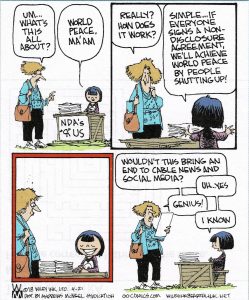With the exception of those terrible times when changing weather patterns, earthquakes, plagues or ice age expansion killed many people and forced an immediate shift in cultural behavior, culture typically changes in an orderly way. It takes about sixty years to move clearly from one set of mores to a different set. Even with behavior-changing inventions like the internal combustion engine or gunpowder, it still takes a while for society to adapt to new ramifications.
But not this time. The timing of the Covid pandemic could not have been worse. The world economy is weak and the poor nations truly are entering bankruptcy; The rich nations have economic problems, too, as global resources are shrinking and forcing governments and economists into new ways of thinking about everything from limitations on wealth to child care.
The introduction of the Internet, social media, and supply chain abuse (e.g. Amazon, Disney, JP Morgan Chase Bank, Google, Facebook and private equity monopolies) have been introduced at lightning speed compared to the slower standards of cultural change. This contemporary fullness of time is fragile and has shallow roots in a newly emerging moral foundation.
Then came Covid. With the crushing power of Round Up plant killer, the cultural transition, halting at best, was stopped dead. Big money was free to manipulate social function; plutocrats took charge of Congress; the wounds from Donald’s presidency could not heal. The working classes, long persecuted under Reaganomics and now caught in a culture at dead stop because of the pandemic, lost faith in institutions, have doubts about sustaining a satisfactory life, and even the birthrate has continued to drop in the U.S. primarily because of economic fears (and helped along by an aging population).
How can the U.S. citizenry restart a process that will grow a new ethos, a new moral character that will control the new age of economics, powerful advances in electronics, social media and provide fair, equitable guarantees for every citizen’s future?
To shift metaphor just a bit, fixing the aforementioned issues is a lot like taking a car to the repair garage: society is made up of parts just like an automobile. The citizenry must educate themselves on which parts need to be replaced. For example:
Don’t vote for baby boomers. The world they understand doesn’t exist anymore.
Don’t vote for ideologues – either conservative or liberal. One can tell an ideologue because one or two issues are what is wrong with everything in the world. For example, the move to restrict voting in state governments is motivated by a desire by conservatives to gain the upper hand in national politics even as a minority. Voting, while a bit outdated given modern communication technology, isn’t the primary cause of the nation’s problems.
Don’t vote for identity candidates. It is true that there are many issues that need to be repaired involving race, environment, police, taxes, etc. but a larger issue is that the nation has no unity. Electing candidates with one large social issue will not help with unity.
Do vote for younger candidates – even in their twenties if they seem capable.
Do vote for candidates with an even demeanor who seem pragmatic and capable of negotiation. These are the mechanics that can get the government running again.
Despite the bad name education has received lately, don’t discount it entirely. Ask the candidate a question about an idea rather than a quick fix. How is the idea handled?
Unfortunately, the vote in 2022, 2024 and even 2026 will not settle things very much. Too many issues are rolling along unconstrained. The best bet, though, is to vote in a new set of representatives in all U.S. governments.
Ancient Mariner


